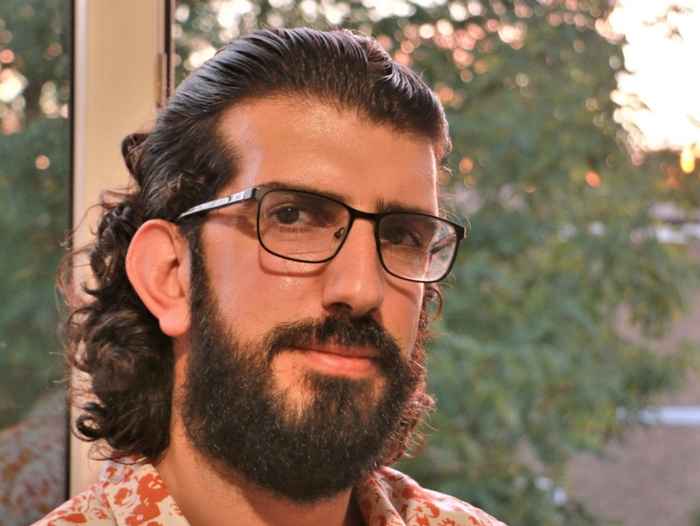‘In the Netherlands you have the privilege of making mistakes’
Amsterdam Law School
7 September 2023

It would have been hard to predict over 7 years ago that a pharmacy student in Damascus would start a research track at the Amsterdam Law School. But the Syrian civil war pushed Alshoufi’s life in a different direction. ‘After studying pharmacy, I worked at the Red Cross for a few years. I wanted to leave Syria for a long time, but working there gave me purpose. I felt like I was helping people. After a while I realized the situation wasn’t changing and I needed to leave.’
Valuing privilege
‘Fleeing a country has a major influence on all aspects of someone’s life’, he explains. ‘It affected my academic life in the sense that I am very aware of the fact that if you have an opportunity to learn more, you need to grab it. In the Netherlands you are encouraged to do research: you get paid to do a PhD, there is emotional support and you have the freedom to choose your own topics.’
‘You don’t realize how precious these choices are, until they are not yours to make. Now I realize the privilege of researching and living in the Netherlands. The freedom to choose your degree program, what clothes you want to wear or who you love. The freedom to do what you want whether it’s right or wrong is a privilege. Making mistakes is a privilege.’
‘I didn’t choose to study pharmacy. My family decided that for me because I had good grades. But looking back I would have chosen that path again. I found happiness in what I do. I feel like I can make a real difference and I enjoy it.’ Alshoufi continued his academic career in Hungary where he completed a Master’s in Public Health and he is currently completing another Master’s at Utrecht University in Health and Environment.
Research ambitions
The law component of the Hestia research in medicine will be relatively new for Alshoufi. He will spend the next 2 years with UvA's Law for Health and Life looking at the effect EU pharmaceutical regulation has on other countries. He joins forces with supervisor dr. Katrina Perehudoff whose Veni grant specializes in this area.
‘When a medicine is approved in the EU some countries mirror that decision. They blindly depend on the EU. Understandably in some cases because they don’t have the resources to do their own research. But this means that the drug will then also be approved in another country with different policies and populations. There is a risk in that. This effect should be taken into consideration when the EU makes their decision.’
Responsibility of the EU
Is it really the responsibility of the EU when other countries decide to rely on EU decisions? ‘I think it is. I think it’s part of the EU’s values and solidarity with other countries. In my view, that includes considering the effect of what they’re doing on other countries.’ Alshoufi will investigate these possible ripple effects of EU regulation on policies in Jordan, Lebanon, Egypt, Algeria, Tunisia, and Syria. ‘I’m excited Syria is one of these countries. I’m very optimistic that our research will steer regulation in a better direction.’